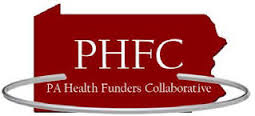States Taking Different Paths to Pay for Medicaid Expansion
With the federal share of Medicaid expansion falling to 90 percent next year, states that expanded their Medicaid programs under the Affordable Care Act are now exploring new ways to raise the money to pay for the 10 percent for which they will soon by responsible.
 Some are implementing hospital or insurer taxes while others are increasing existing taxes on hospitals and health insurers. New Hampshire is directing part of the proceeds from a liquor tax for this purpose and other states have introduced cigarette taxes. Some are charging premiums to Medicaid beneficiaries and introducing work requirements for their Medicaid population so they can reduce overall enrollment. Many are using money from their general revenues.
Some are implementing hospital or insurer taxes while others are increasing existing taxes on hospitals and health insurers. New Hampshire is directing part of the proceeds from a liquor tax for this purpose and other states have introduced cigarette taxes. Some are charging premiums to Medicaid beneficiaries and introducing work requirements for their Medicaid population so they can reduce overall enrollment. Many are using money from their general revenues.
This all comes at a time when many states are finding that their budget situations have improved and are better than they have been in years.
Learn more about how states are dealing with this challenge, and whether they are finding that it is worth it, in the Washington Post article “States scramble to head off future Medicaid shortfalls.”
 Currently, Medicaid DSH allotments to the states are scheduled to be reduced $4 billion in FY 2020 and then $8 billion a year in FY 2021 through FY 2025. MACPAC recommends that the cuts be reduced to $2 billion in FY 2020, $4 billion in FY 2021, $6 billion in FY 2022, and $8 billion a year from FY 2023 through FY 2029.
Currently, Medicaid DSH allotments to the states are scheduled to be reduced $4 billion in FY 2020 and then $8 billion a year in FY 2021 through FY 2025. MACPAC recommends that the cuts be reduced to $2 billion in FY 2020, $4 billion in FY 2021, $6 billion in FY 2022, and $8 billion a year from FY 2023 through FY 2029.

 The Pennsylvania Health Law Project has issued a statement detailing its perspective on the recently proposed American Health Care Act, which would both repeal and replace the Affordable Care Act of 2010.
The Pennsylvania Health Law Project has issued a statement detailing its perspective on the recently proposed American Health Care Act, which would both repeal and replace the Affordable Care Act of 2010. The Kaiser Family Foundation has just created a new tool that enables users to compare and contrast all of the current repeal and replace proposals: you pick the proposals you want to compare and you select the aspects of those proposals that interest you.
The Kaiser Family Foundation has just created a new tool that enables users to compare and contrast all of the current repeal and replace proposals: you pick the proposals you want to compare and you select the aspects of those proposals that interest you. In a new report, the Pennsylvania Health Funders Collaborative attempts to answer that question, offering projections on the impact of the 2010 health reform’s repeal on jobs, prescription drug coverage for seniors, insurance status for low-income Pennsylvanians, hospitals, and the state’s economy as a whole.
In a new report, the Pennsylvania Health Funders Collaborative attempts to answer that question, offering projections on the impact of the 2010 health reform’s repeal on jobs, prescription drug coverage for seniors, insurance status for low-income Pennsylvanians, hospitals, and the state’s economy as a whole. If the Affordable Care Act, or Obamacare, is repealed and not replaced, over a million Pennsylvanians could lose access to health care and tens of thousands of people – people who are our friends, our neighbors, and our family members that are currently receiving treatment for a substance use disorder – would lose insurance coverage and no longer be able to afford their treatment.
If the Affordable Care Act, or Obamacare, is repealed and not replaced, over a million Pennsylvanians could lose access to health care and tens of thousands of people – people who are our friends, our neighbors, and our family members that are currently receiving treatment for a substance use disorder – would lose insurance coverage and no longer be able to afford their treatment.